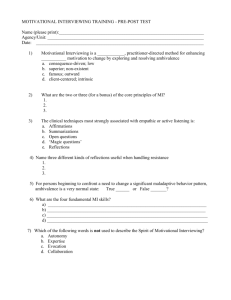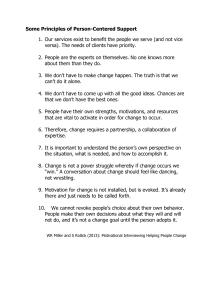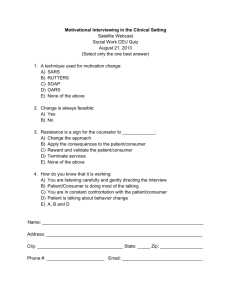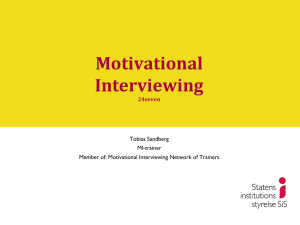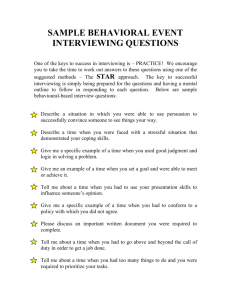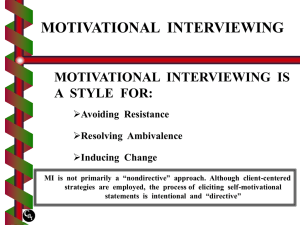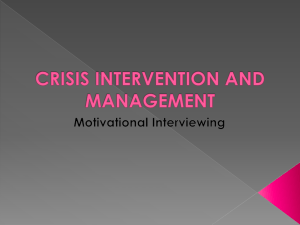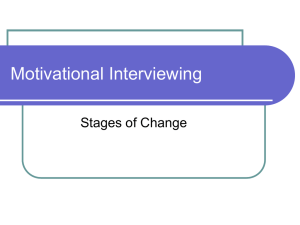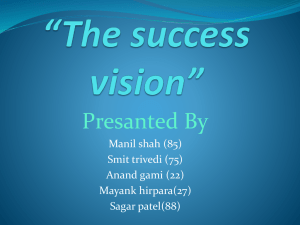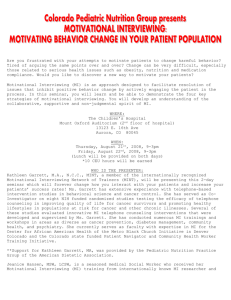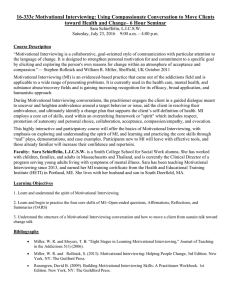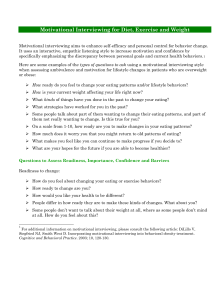COPD Theory to Practice: Patient Education
advertisement
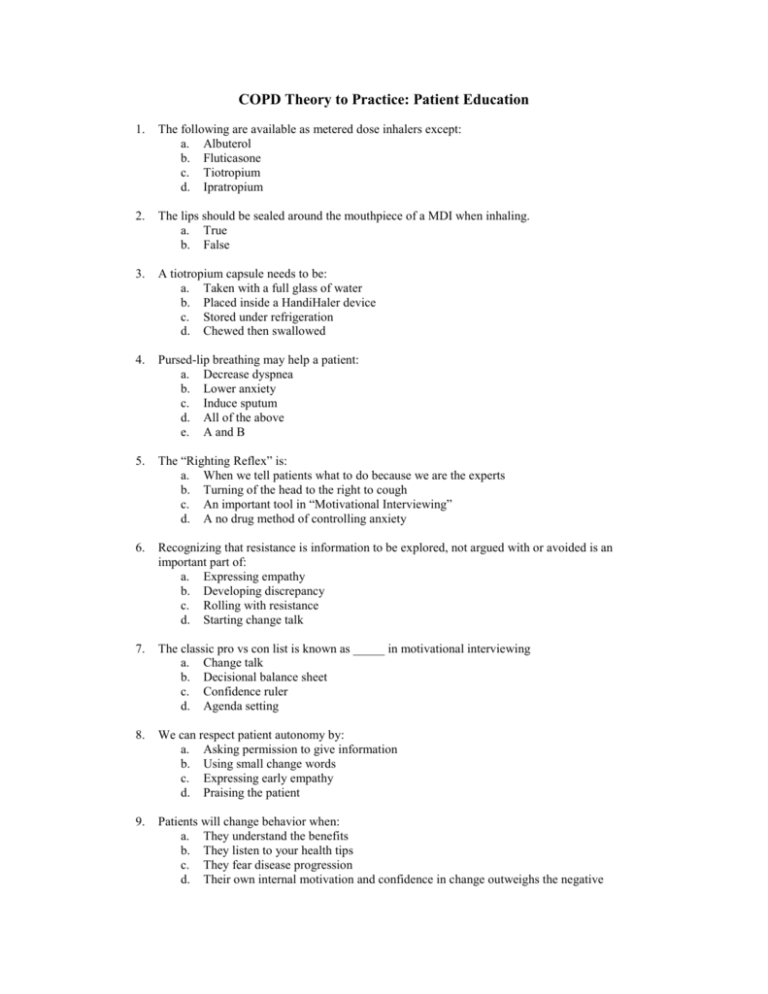
COPD Theory to Practice: Patient Education 1. The following are available as metered dose inhalers except: a. Albuterol b. Fluticasone c. Tiotropium d. Ipratropium 2. The lips should be sealed around the mouthpiece of a MDI when inhaling. a. True b. False 3. A tiotropium capsule needs to be: a. Taken with a full glass of water b. Placed inside a HandiHaler device c. Stored under refrigeration d. Chewed then swallowed 4. Pursed-lip breathing may help a patient: a. Decrease dyspnea b. Lower anxiety c. Induce sputum d. All of the above e. A and B 5. The “Righting Reflex” is: a. When we tell patients what to do because we are the experts b. Turning of the head to the right to cough c. An important tool in “Motivational Interviewing” d. A no drug method of controlling anxiety 6. Recognizing that resistance is information to be explored, not argued with or avoided is an important part of: a. Expressing empathy b. Developing discrepancy c. Rolling with resistance d. Starting change talk 7. The classic pro vs con list is known as _____ in motivational interviewing a. Change talk b. Decisional balance sheet c. Confidence ruler d. Agenda setting 8. We can respect patient autonomy by: a. Asking permission to give information b. Using small change words c. Expressing early empathy d. Praising the patient 9. Patients will change behavior when: a. They understand the benefits b. They listen to your health tips c. They fear disease progression d. Their own internal motivation and confidence in change outweighs the negative 10. It is of utmost importance to first establish a trusting, respectful relationship with a patient in order to help them make the right decisions and change their behavior. a. True b. Flase
